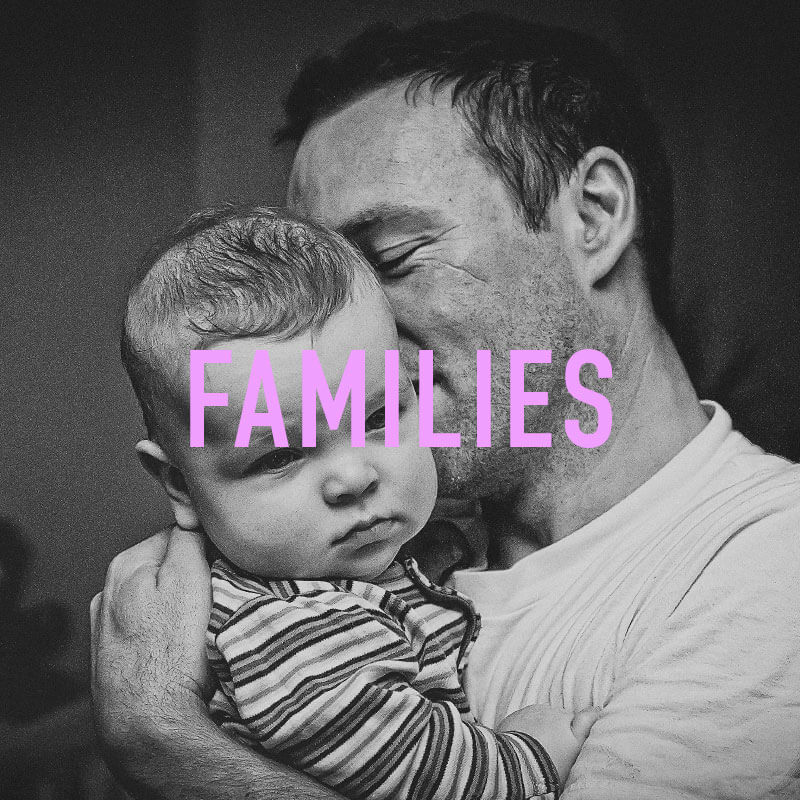
Only love deserves loyalty, not countries or ideologies
Opinion + AnalysisRelationships
BY James Connor The Ethics Centre 19 JUL 2016
We exist via our social interactions with others. Without these connections embedding us in the social world we have no identity, existence or meaning. These ongoing interactions, made easier through habit and accepted norms, define us.
Central among these habits and norms is the idea of loyalty. Our loyalties provide a guide to what we might expect in an otherwise uncertain world. It is about our expectations of future action – my loyalty is based on the feeling that you will return it in future.
Being loyal is not obligatory, but when you breach someone’s loyalty you lose part of yourself. That’s the inescapable cost of disloyalty, whether minor – a friendship lost – or extreme – the firing squad for treason. That is the challenge with loyalty – there is always a chance to be disloyal. If that opportunity didn’t exist, loyalty wouldn’t make sense at all.
Nobody deserves our unconditional loyalty. However, they do deserve a shared sense of reciprocity based on past actions and hopes for the future. If people are loyal to us, they expect we will return that loyalty at some point in the future. And this is where the problem begins.
It can be hard to imagine a self without certain relationships and so we tend to hold to them more strongly.
The future is unknowable. Our loyalty may be called on in a variety of circumstances, from the mundane to the deeply difficult. A brother asks you to lie – how far are you willing to go to maintain that familial loyalty? What has he done to require you to lie? Is it the socially lubricating ‘white lie’ – “please tell Mum I wasn’t late”, or the far more serious – “please tell the police we were together all evening”.
What’s crucial here is an assessment of the act that generated the need to lie – what is the social expectation regarding the behaviour – is it acceptable? Is it the sort of behaviour other people would overlook in favour of loyalty?
We tend to over-invest in those loyalties that are key to our social milieu. It can be hard to imagine a self without certain relationships and so we tend to hold to them more strongly. Loyalty to family, friends, sports team, social activity – without them we lose parts of our self.
Because these relationships form part of who we are, there is a cost to disloyalty, even when it is the right thing to do. The experience of whistleblowers reveals the loss of identity that can come from breaching loyalty. While whistleblowing is often the ethical choice, the individuals tend to be shunned, excluded, exposed, attacked and betrayed.
If our country provides the basics of existence, security of self, food, shelter and the conditions to live a just life, then don’t we owe a debt of loyalty?
Loyalty can be vexing when it is demanded rather than given freely. Nation-states demand loyalty from their citizens to the point of self-sacrifice, especially in times of war. We also see a demand for loyalty attached to ideologies and beliefs. For example, the McCarthyism in the US in the 1950s saw an aggressive enforcement of compulsory ideological loyalty to one political system over another. Do we as citizens have an obligation to be loyal to our country of birth?
If our country provides the basics of existence, security of self, food, shelter and the conditions to live a just life, then don’t we owe a debt of loyalty? No, we don’t. Loyalty to abstractions shouldn’t be demanded. In fact I think we should avoid such commitments because they ask us to sacrifice real loyalties to people – family, friends and community.
The nation doesn’t care for you or me as an individual, that’s the job of our interpersonal connections. It’s also what makes them more important to us. However, a defender of nationalism might point to the threat a conqueror poses to the individual and family. They might argue that you have an obligation to be conscripted to defend your nation as a way to protect the people you are loyal to, but this is different to being loyal to the state itself.
Our loyalties foster connection, provide us with a map of social obligations and help alleviate the threat of an unknowable future. But to call upon them is fraught with risk – we might be betrayed, exploited or the future may change in ways we don’t anticipate. But if there were no risk, there would be little value to being loyal at all, would there?
Ethics in your inbox.
Get the latest inspiration, intelligence, events & more.
By signing up you agree to our privacy policy
You might be interested in…
Opinion + Analysis
Politics + Human Rights, Relationships
Who’s your daddy?
Opinion + Analysis
Relationships, Society + Culture
FODI launches free interactive digital series
Explainer
Health + Wellbeing, Relationships
Ethics Explainer: Eudaimonia
Opinion + Analysis
Relationships




